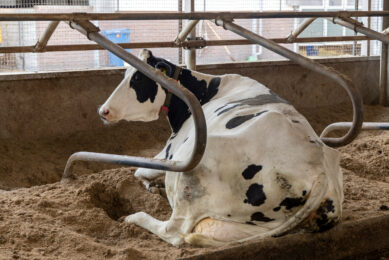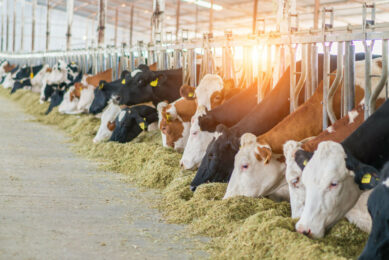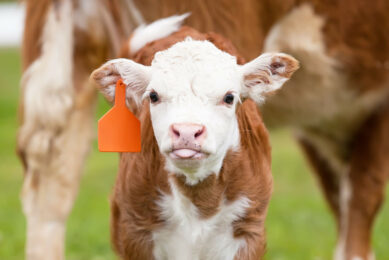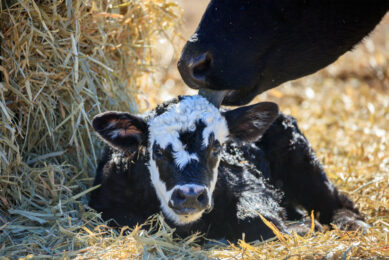Cow welfare discussed at World Dairy Summit
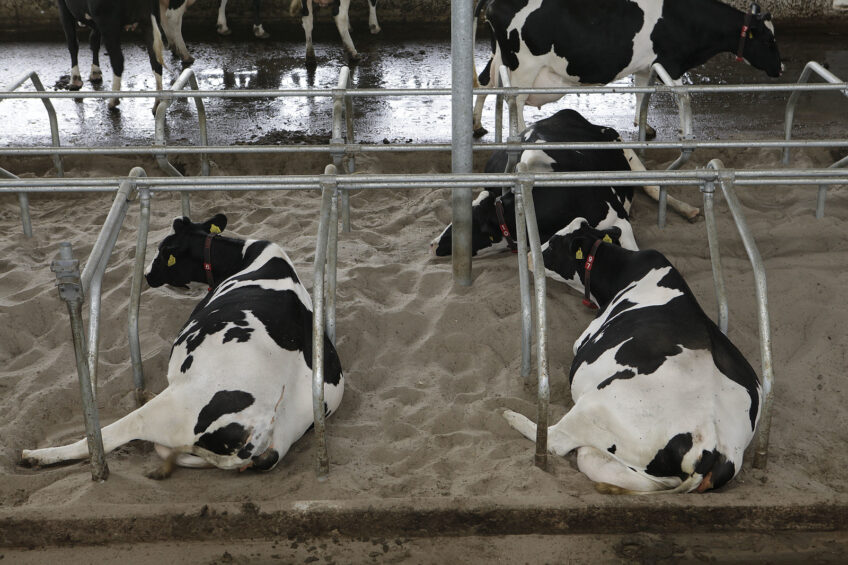
Are dairy cows treated good enough and why is animal welfare so important in livestock production? Dairy Global talked to Robin Ganzert, who gave a keynote presentation on this topic at the World Dairy Summit, that is currently taking place in Rotterdam, the Netherlands.
Robin Ganzert, Ph.D., is the President and CEO of American Humane Association, the oldest national humane organisation in the United States. American Humane’s farm animal welfare certification program, the first of its kind in the United States, ensures the humane treatment of hundreds of millions of animals.
Dairy Global (DG): In what way have you seen consumer views/perceptions changed regarding the production of animal products (meat, milk) over the last 10 years? And what is the effect on the global dairy industry?
Robin Ganzert (RG): “Over the past decade, we’ve seen consumers grow increasingly aware of, and concerned about, the humane treatment of farm animals. In a recent survey of US consumers commissioned by American Humane, the first national humane organisation in the United States, more than 9 out of 10 respondents (95%) said they were “very concerned” about farm animal welfare. Over three-quarters (76%) of survey participants were also very willing to pay more for humanely raised eggs, dairy, and meat. And in rankings of the importance of food labels, “humanely raised” scored highest. As a result of this strong consumer preference for humanely raised food, more and more farmers are embracing third-party humane certification to clearly demonstrate their commitment to transparent, ethics-driven animal welfare standards.”
DG: Do you think dairy farmers have been lacking in their communication of a good and honest story about dairy cow farming (e.g. focus on innovation in the dairy industry, use of milking robots, cow brushes etc).
RG: “Farmers around the world recognise that it’s important to build trust with consumers, and today, the public is more sceptical than ever. In the United States, for example, a Gallup poll conducted last year found that 9% of Americans trust corporations a “great deal”, while a mere 12% trust Big Business “quite a lot”. In response, many farmers are using third-party certification to help earn and deserve consumer trust. A 2011 survey from the US Food and Drug Administration and other government agencies found that most consumers tend to have a “high positive attitude” toward certified food products. The national survey also indicated that a majority of Americans believe they are safer than their non-certified counterparts.”
DG: The definition of animal welfare can be different for everyone. How does your organisation see this?
RG: “There are many misconceptions about the term “animal welfare”, including the assumption that humanely raised products are always prohibitively expensive for consumers; that there’s a very limited number of humane farm practices; and that modern food production is incompatible with farm animal welfare. That’s not the case. Unlike other welfare accreditation efforts, which only tend to cover few animals and a small number of farm practices, American Humane Certified—the first-ever US farm animal welfare certification effort established by American Humane—verifies a spectrum of humane choices, all of which are founded on evidence-based standards of animal welfare. This comprehensive approach ensures that humane food production is more affordable for producers and consumers alike. American Humane also believes that there is no contradiction between 21st-century farming practices and the humane treatment of animals. Rather, modern agricultural innovations are enabling the industry to produce humanely raised food products that are more affordable and accessible to consumers than ever before.”
DG: What can the emerging dairy countries learn from Europe and the US in terms of how animal welfare is perceived and is part of legislation for example?
RG: “In the United States, we’ve learned that one of the best ways for dairy farmers to shape public perceptions of animal welfare is the use of third-party humane certification, which reassures sceptical consumers and helps demonstrate the industry’s commitment to the highest standards of defensible farm animal care.”
DG: How well are cows treated (in general)? And which main differences can be seen between developed and developing countries?
RG: “There are so many farmers who are ethical stewards of the animals under their care. And these dedicated, responsible producers around the world are often on the front-lines of animal welfare.”
DG: Why is it so important that dairy producers and dairy professionals keep the discussion about animal welfare topics at events like WDS?
RG: “It’s so important to have an ongoing, global conversation about animal welfare to ensure that ethics-driven farmers worldwide are constantly innovating to improve the lives of animals in more affordable, transparent, and ground-breaking ways.”
Join 13,000+ subscribers
Subscribe to our newsletter to stay updated about all the need-to-know content in the dairy sector, two times a week.




